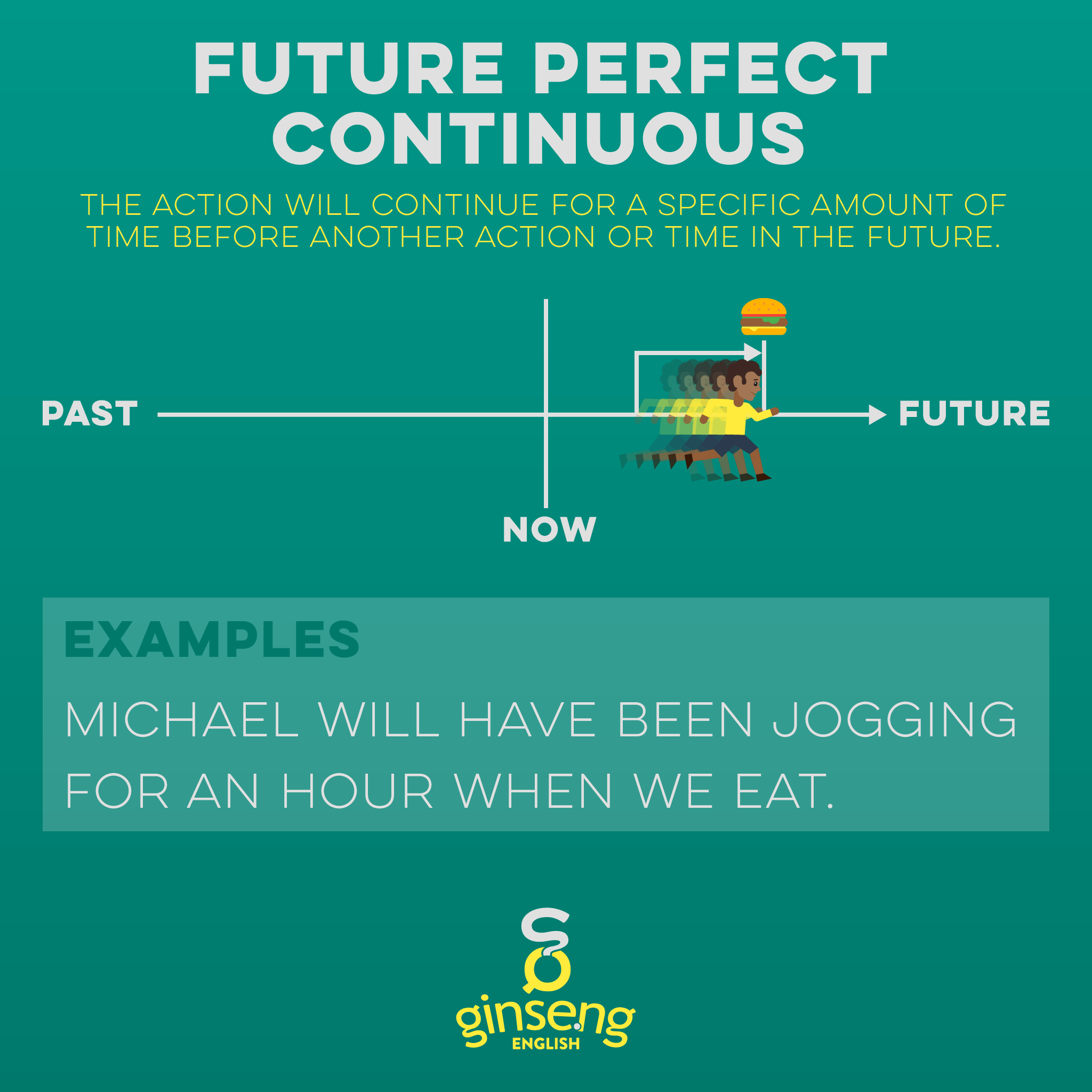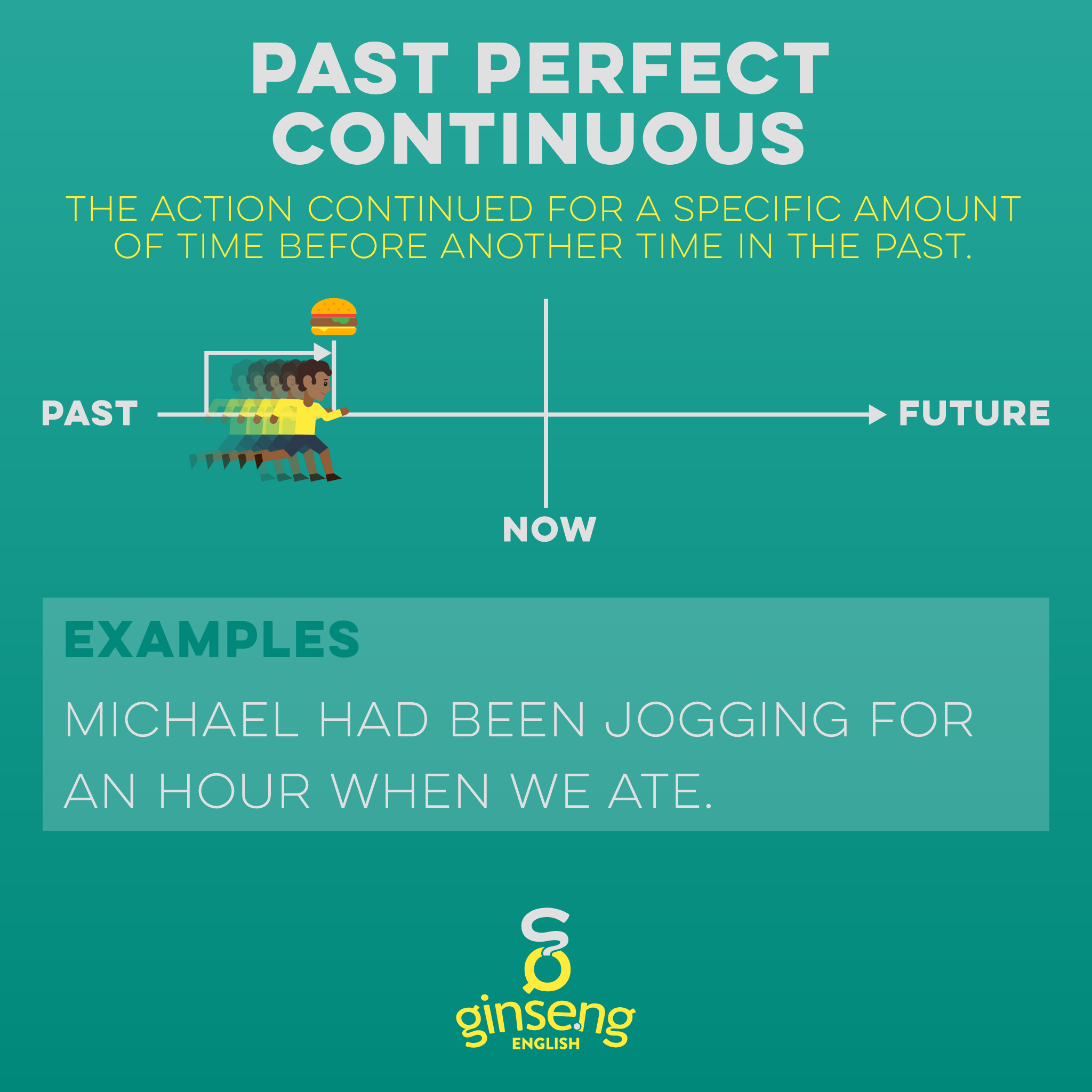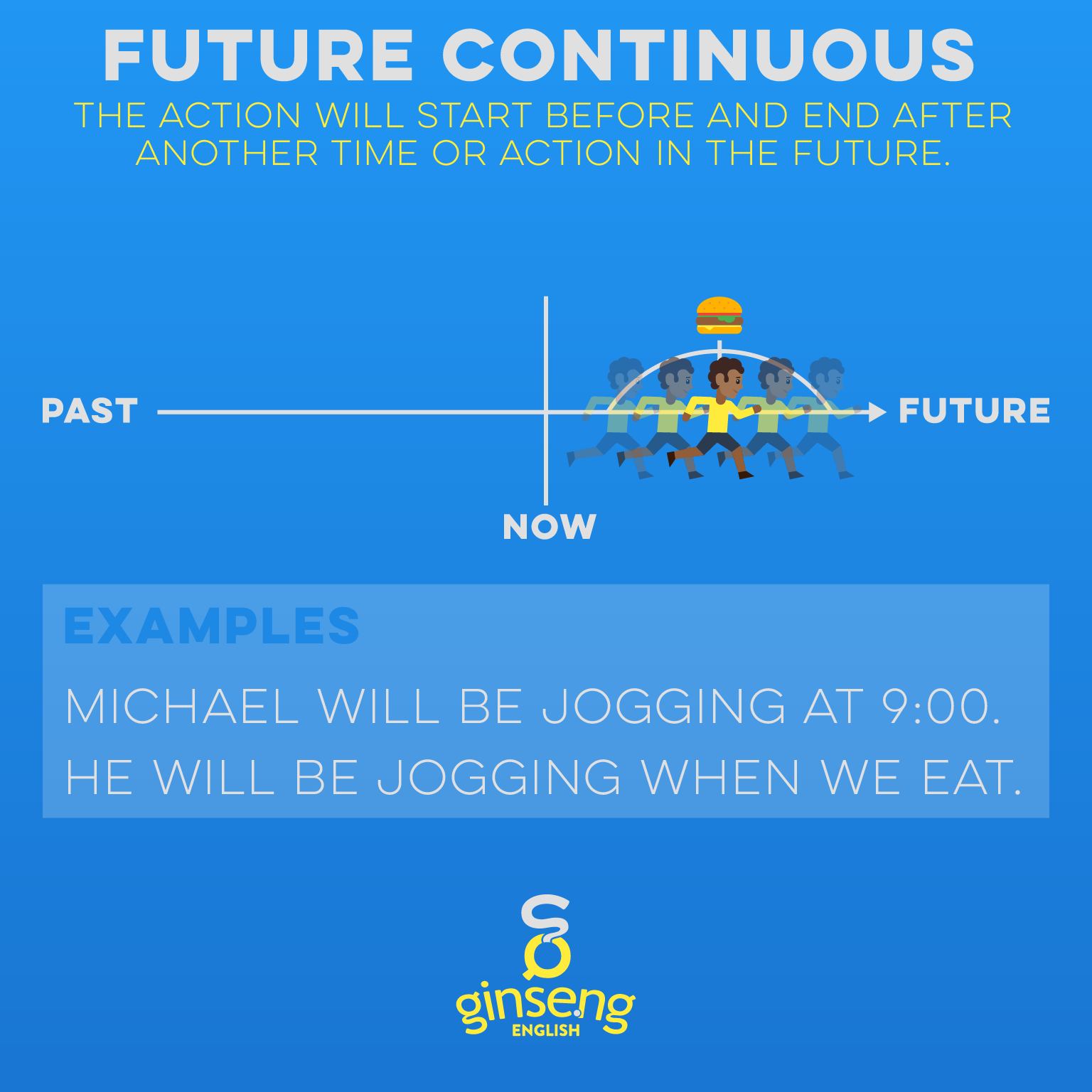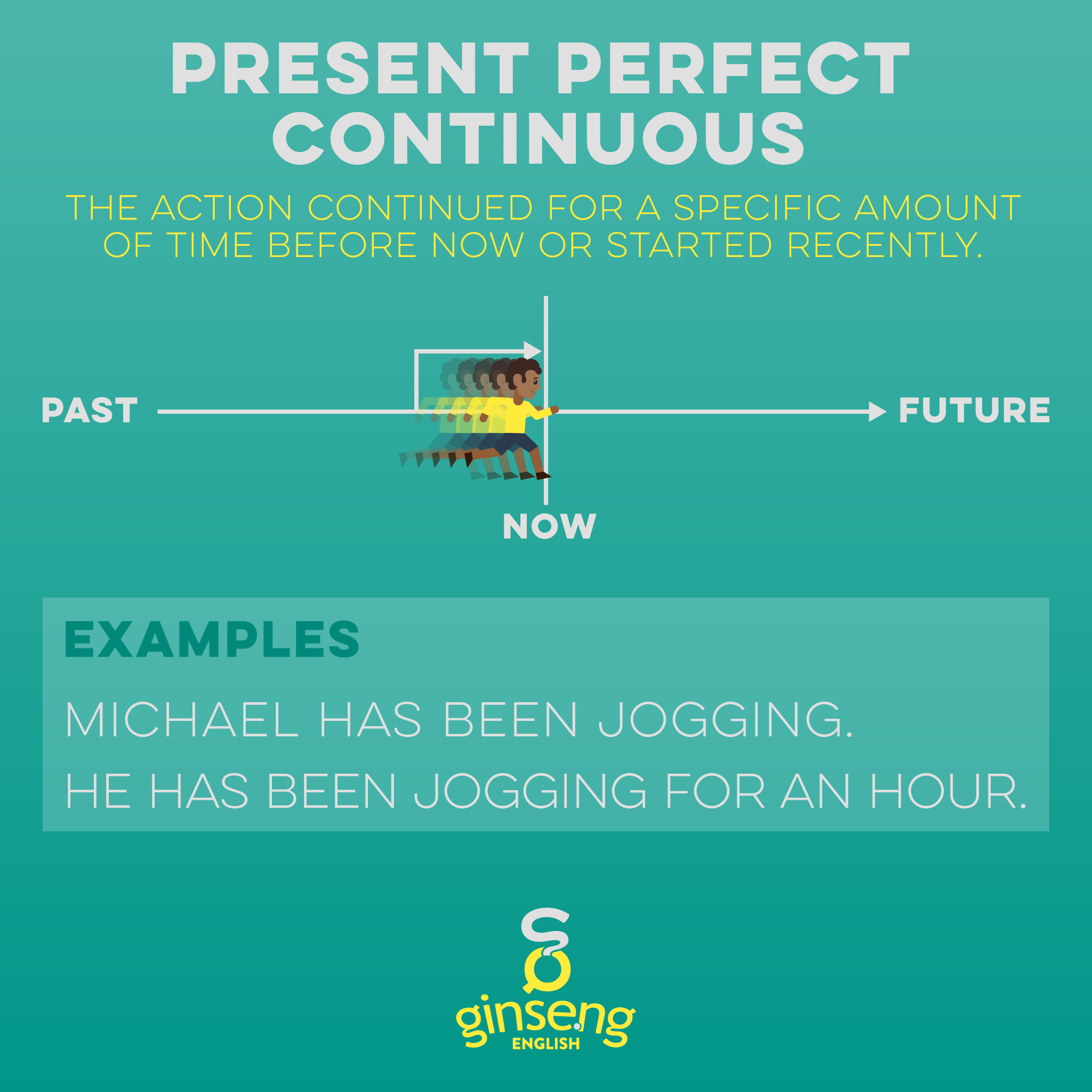The future perfect continuous is an English verb form used to describe an action that starts in the future and continue up to another time or action in the future. This can be a time or date, or it can be another action. Often a duration is specified for the verb in the future perfect continuous. This verb form alone does not specify if the action will continue after that point.
This is a very rare verb form. Less than .1% of English verbs are in the future perfect continuous. Do not use this verb tense unless you are absolutely certain that it is necessary.
Note that continuous and progressive are just different words for this same thing, so some people call this tense the future perfect progressive.
Keep reading to learn the rules and reasons for using and forming the future perfect continuous, including loads of charts and examples!
Using the Future Perfect Continuous
Perfect continuous verbs are used to describe an action that has been in progress before another action or point in time, often with a duration specified. With the future perfect continuous, that time is in the future. This can be a time or date (next summer, Saturday at 5, in 2050) or it can be another action in the future.
Chart for Future Perfect Continuous Tense In English
Here are some example sentences:
By the time I finish my Ph.D., I will have been studying for over 20 years!
Monday is my work anniversary. I'm going to have been working here for a decade!
In these examples, the perfect continuous action (will have been studying, going to have been working) is presented with a duration (over 20 years, a decade) and another action (I finish) or point in time in the future (Monday).
Form
Formula with Will
To form the future perfect continuous, we use the future perfect form of the helping verb be—will have been or going to have been—and the continuous form of the main verb. No matter what the subject is, the verb form is
subject + will have been + VERBing
Conjugation
Here are conjugation tables showing the verb work in the future perfect continuous with will.
| Singular | Plural | |||
|---|---|---|---|---|
| 1st person | I | will have been working. | we | will have been working. |
| 2nd person | you | will have been working. | you | will have been working. |
| 3rd person | he | will have been working. | they | will have been working. |
| she | will have been working. | |||
| it | will have been working. | |||
Formula with Going to
Because forming the future tenses with going to is more complex and wordy, we almost never form the future perfect continuous with going to. In the rare situation that we might use it, the form is
subject + am/is/are + going to have been + VERBing
Conjugation
Here is a conjugation table:
| Singular | Plural | |||
|---|---|---|---|---|
| 1st person | I | am going to have been working. | we | are going to have been working. |
| 2nd person | you | are going to have been working. | you | are going to have been working. |
| 3rd person | he | is going to have been working. | they | are going to have been working. |
| she | is going to have been working. | |||
| it | is going to have been working. | |||
Other Forms
Questions
In the future perfect continuous, you have more than one helping verb. To make a question, move the subject after the first helping verb, will, but before the second helping verb, have. Again, please keep in mind that these forms are extremely rare, and these examples sound very unnatural in English; we share them only to help students understand the patterns of the language.
At what point will you have been acting for 20 years?
When will they have been playing this game for too long?
Negative Sentences
You can form a negative by inserting not between the first helping verb will and the second helping verb have. For example:
In January, we will not have been living in California for 20 years.
But notice that the negative form is ambiguous. It is unclear which part of the sentence we are negating. Are we living someplace other than California? Has it just not been 20 years yet? This is a good reason to avoid making negative sentences in the future perfect continuous.
The Passive Voice
If for some reason you need to make a passive sentence in the future perfect continuous, use be in the future perfect continuous (will have been being) and then the perfect form of the main verb. As you can see in the following example, this is awkward and confusing
Next year the house will have been being renovated for 5 years.
We do not recommend making future perfect continuous passive sentences.
CHECK OUT THESE OTHER FREE GRAMMAR RESOURCES:






